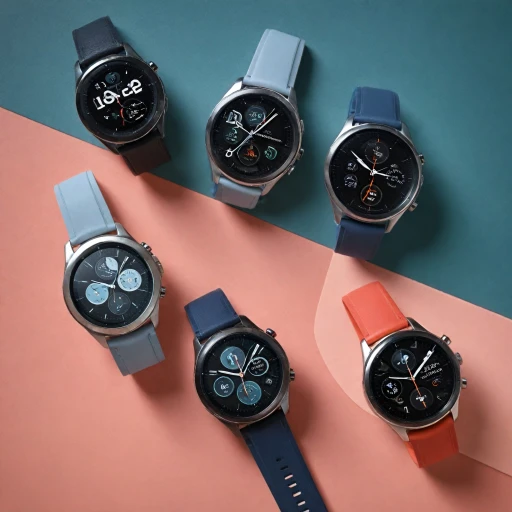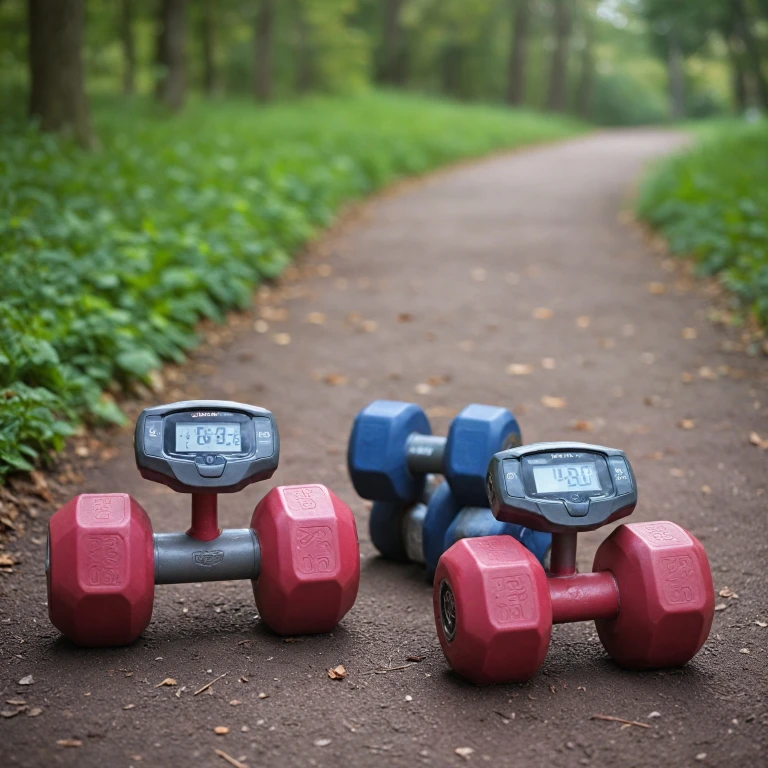Understanding heart rate monitoring technology
Delving into the Basics of Heart Rate Monitoring Technology
Understanding the intricacies of heart rate monitoring technology is key to choosing the best heart rate monitor watch for your needs. Heart rate monitors are essential tools for fitness enthusiasts and health-conscious individuals who aim to track heart activity during workouts, sleep, and everyday activities. These devices measure heart rate accurately, providing insights that can help prevent health issues like atrial fibrillation.
Recent advancements in technology have equipped smart watches with capabilities that once required separate devices. Brands such as Garmin and Apple have been at the forefront of integrating sophisticated heart rate monitoring features into their best fitness trackers. The accuracy of data collected by these monitors is crucial, as it influences the effectiveness of workout routines and overall health monitoring.
- Wrist-Based Monitors: Often found in fitness trackers and smart watches, these devices measure heart rate using optical sensors that detect blood flow changes under the skin. Although convenient, wrist-based monitors may not always offer the same level of accuracy as chest strap monitors, especially during intense physical activities.
- Chest Strap Monitors: Renowned for being more precise, chest strap monitors use electrodes that directly capture the electrical activity of the heart, similar to an ECG. They are often preferred by athletes and fitness enthusiasts who require accurate data during rigorous exercises.
For those looking to explore further, integrating heart rate data with suitable fitness apps enhances the tracking of health metrics and allows for a more comprehensive approach to fitness goals. Navigating through the plethora of devices available in the market, such as the Apple Watch and Galaxy Watch, requires an understanding of features and battery life considerations, ensuring that you select a wrist device that aligns with your personal health and fitness objectives.
Discover the potential of smart watches with blood pressure monitoring to complement your heart rate tracking journey as you find the ideal heart rate monitor watch for your lifestyle.
Key features to look for in a heart rate monitor watch
Essential Features for the Discerning Buyer
When on the quest for the best heart rate monitor watch, distinguishing between the various features is crucial to finding the right fit for your lifestyle and fitness goals. Here are some of the key attributes to consider when evaluating heart rate monitoring devices.
- Accuracy: An accurate measure of heart activity is pivotal, especially if you are monitoring heart health or tracking fitness metrics. While most modern watches like the Apple Watch and Garmin devices boast precise sensors, some might prefer the reliability of a chest strap monitor for activities that require exact data.
- Battery Life: Knowing the duration your watch can operate before needing a charge is vital. Watches with long battery life allow uninterrupted tracking of workouts and daily activity, without constantly worrying about charging.
- Fitness Tracking Capabilities: The ability to track multiple activities, monitor sleep patterns, and even detect atrial fibrillation can significantly enhance your fitness routine. Moreover, the integration with fitness tracker apps enables you to comprehensively analyze your progress.
- Water Resistance: Whether you're an avid swimmer or looking to monitor yourself during water-based activities, ensure your chosen device can endure submersion. Some watches, like the Apple Watch, are built for such scenarios, making them suitable for aquatic environments. Learn more about water resistance in smartwatches here.
- Additional Health Features: Advanced features such as ECG monitoring and stress tracking provide a broader picture of your well-being, allowing better-informed decisions on your health journey.
- Customization and Compatibility: The ability to customize watch faces and compatibility with various apps can enhance user experience. Also, compatibility with other devices, like a Galaxy Watch syncing with Android phones, could be a deciding factor.
With these aspects in mind, you'll be better equipped to choose a heart rate monitor watch that aligns with your lifestyle and fitness goals.
Comparing accuracy: wrist-based vs. chest strap monitors
Assessing Accuracy: Wrist-Based vs. Chest Strap Monitors
Understanding the disparities in accuracy between wrist-based and chest strap heart rate monitors is essential for consumers aiming to make informed decisions. Fitness enthusiasts must evaluate the advantages and limitations of these devices to optimize their health tracking efforts.
Wrist-based heart rate monitors, like those found in popular smartwatches such as the Apple Watch and Galaxy Watch, have gained widespread appeal due to their seamless integration with everyday activities and fitness tracking. These devices offer the convenience of tracking health and ECG data without additional equipment, making them ideal for casual workouts or daily fitness tracking. However, they may at times be prone to variations in accuracy, especially during high-intensity workouts when swift heart rate changes occur.
In comparison, chest strap monitors, such as the renowned Garmin HRM, generally provide more precise heart rate data. These devices are designed to measure the electrical readings directly from the heart, offering superior accuracy and consistency even during vigorous physical activities. While they are best suited for individuals who require reliable data—including professional athletes and dedicated fitness enthusiasts—wearing a chest strap during workouts might be seen as less convenient than using a wrist-based watch.
The accuracy of heart rate monitors plays an important role in enhancing the quality of fitness data received. Understanding their differences and aligning them with your personal needs can guide you in choosing the best fitness tracker. For a nuanced review of the best heart rate monitors available today, consider the context in which they are used to make an informed selection. Visit
choosing the right golf watch for insights on selecting a suitable heart rate monitor for your goals. This evaluation can help ensure that your choice aligns with your health and fitness objectives.
Top heart rate monitor watches in the market
Top Heart Rate Monitor Watches to Consider
When it comes to heart rate monitor watches, selecting the right device can make a world of difference in your fitness journey. Various models boast differing features, from design and functionality to monitoring capability. Here's a closer look at some of the top heart rate monitors on the market that cater to a wide range of needs and preferences.
- Apple Watch Series: Known for its seamless integration into the Apple ecosystem, the Apple Watch Series delivers accurate heart rate data and offers features like ECG monitoring and atrial fibrillation detection, making it a top choice for those who prioritize health insights.
- Garmin HRM Devices: Renowned for their precision, Garmin HRM chest strap monitors provide accurate data, proving useful for serious athletes who benefit from detailed performance analytics. Garmin also offers wrist-based monitors like the Garmin fitness trackers, focusing on all-day comfort and apt tracking for a variety of workouts.
- Galaxy Watch Series: These watches stand out for their robust fitness tracking features and impressive battery life, making them ideal for day-long use. The Galaxy Watch includes a heart rate sensor that measures heart activity throughout your daily routine.
- Best Fitness Trackers: Additionally, fitness trackers with heart rate monitoring ability offer a balance between functionality and price. These devices often sync with fitness apps, allowing users to track their health metrics alongside other activities like sleep and exercise.
In your search for the best rate monitor, it's crucial to bear in mind factors like battery life, comfort, and data accuracy. Whichever device you choose, it should align with your lifestyle and specific fitness goals, ensuring optimal integration into your daily health regimen.
Integrating heart rate data with fitness apps
Seamlessly Connecting Your Heart Rate Data with Fitness Apps
The beauty of modern heart rate monitor watches lies not just in their ability to track heart activity, but in the seamless integration of this data with various fitness apps. This integration empowers users to gain holistic insights into their health and fitness routines, offering a comprehensive overview of their cardiovascular health over time.
With such advanced devices, syncing your heart rate data to fitness apps becomes incredibly straightforward. Both well-known options like the Apple Watch and Galaxy Watch have built-in capabilities to connect with popular apps such as Strava, MyFitnessPal, and Under Armour. This connectivity makes it easy to monitor workout progress, sleep patterns, and heart rate variations throughout the day.
Additionally, heart rate monitor watches like those from Garmin offer impressive compatibility with fitness apps. The Garmin HRM series, in particular, is designed to ensure accurate heart rate monitoring during high-intensity workouts, transmitting real-time data to ensure you stay within your desired heart rate zone.
These versatile devices often come with robust health-tracking features. For instance, some watches include ECG monitoring, providing insights into potential atrial fibrillation risks. With smartphone apps on the receiving end, you can store, analyze, and even share this heart data with your healthcare provider if needed.
Beyond exercise, fitness trackers can also provide data on daily activities, including steps counted, calories burned, and even stages of sleep. The comprehensive analysis and user-friendly interfaces offered by fitness apps make these heart rate monitors indispensable tools in pursuit of improved health.
Such integration isn't without its considerations. Ensuring that your chosen device is compatible with the fitness apps you prefer is paramount. Battery life is another important factor; devices with longer battery life mean less frequent charging and more time to gather accurate heart rate data.
By leveraging heart rate data with fitness apps, users can be assured of a more engaging and informed fitness journey. This connected approach reflects the broader trend of personalized health management made possible through the wearable technology revolution.
User experiences and testimonials
Real-World Feedback on Heart Rate Monitor Watches
Choosing the right heart rate monitor can be daunting with the myriad of options available. User experiences and testimonials provide invaluable insights when decision-making. Many fitness enthusiasts and health-conscious users have shared their opinions on popular devices such as the Apple Watch, Galaxy Watch, and Garmin HRM, highlighting both their strengths and potential drawbacks.
For individuals prioritizing daily convenience, wrist-based monitors, like the Apple Watch, are often praised for their seamless integration into daily life and versatile functionality. Users appreciate features like ECG for monitoring potential atrial fibrillation and the integration with health and fitness apps to track heart data across workout sessions and sleep cycles. However, some reviews emphasize the importance of battery life, especially for those relying heavily on continuous heart rate monitoring.
Chest strap monitors, though seen as less convenient, are often favored for their higher accuracy during intense workouts. Active users have reported that Garmin's chest strap designs offer reliable performance, which can enhance workouts and provide more accurate fitness data.
Fitness trackers like Garmin and other leading watches often receive acclaim from those with specific health goals. These devices cater to individuals who need precise heart rate metrics, particularly during high-intensity interval training, where every heartbeat counts.
The real acid test of these devices lies in their ability to integrate heart rate data efficiently with fitness applications. Users consistently stress ease of data synchronization with their chosen fitness apps as a major factor contributing to their positive experience.
Overall, user testimonials reveal that while no single monitor is the ultimate solution for everyone, understanding your fitness needs and lifestyle can guide you to the best heart-monitoring device. Browsing in-depth reviews and considering both wrist-based and chest strap monitors can help you make an informed choice.

